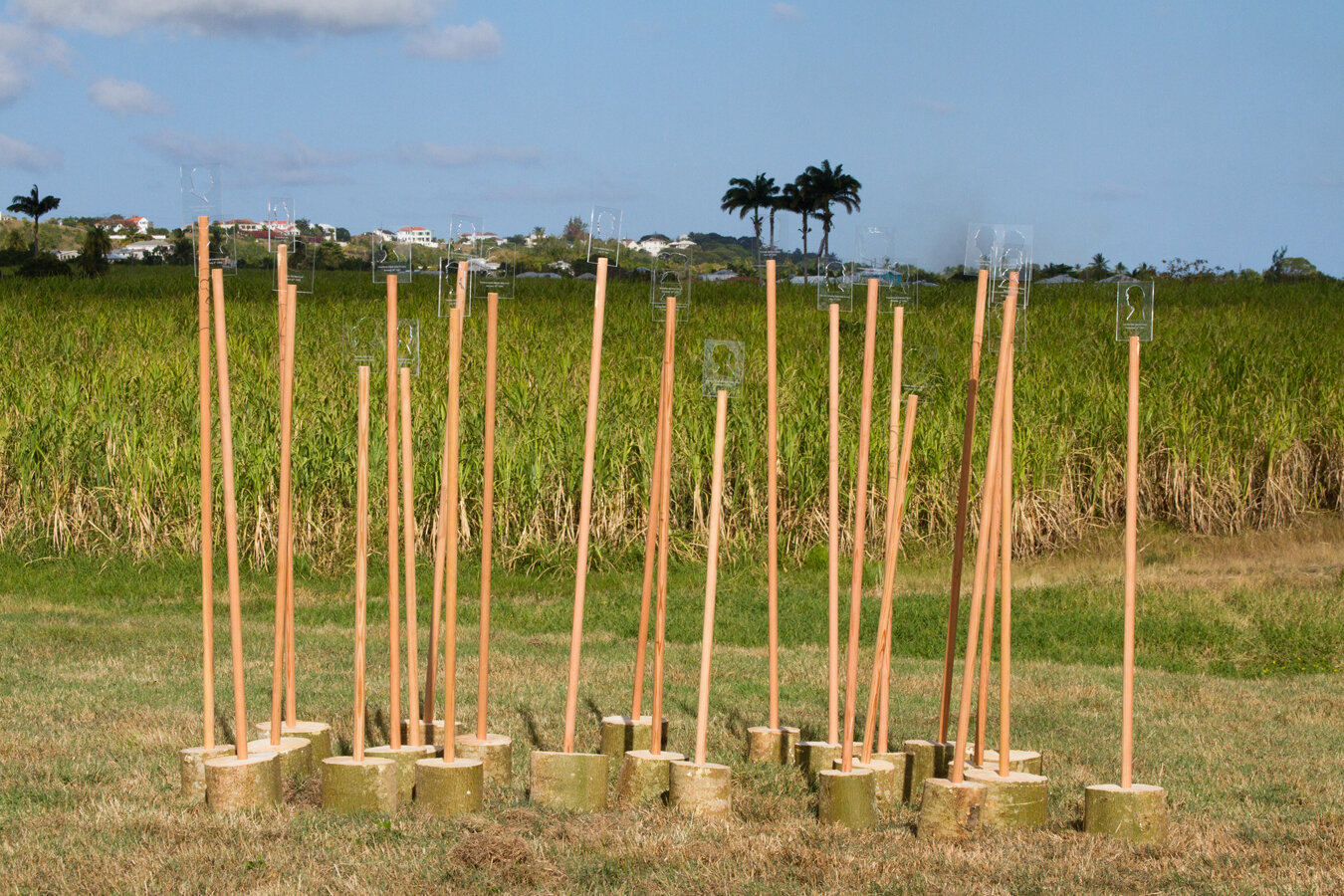
She works at the intersection of biography and history, focusing on post-plantation economies by engaging with a particular landscape on Barbados.

Innerseeing versus Overseeing
To be native to a place we must learn to speak its language.
The land knows you, even when you are lost.

On race and whiteness from the context of Barbados #1
In this global #BlackLivesMatter moment, we are seeing a shift in conversations about race and it feels like a tipping point. White people in Barbados and the wider Caribbean don’t normally speak about whiteness in our context. Is it a generational shift in that younger people are less willing to live socially segregated or oppressed lives? I’m not sure, but it feels like the time to speak about whiteness and call out the more covert ways in which racism and white supremacy have affected our lives in this Small Island Developing State. And as some others have written about their own monologues, this could be more articulate, but I'll throw my hat in the ring.

Champagne Tastes And Mauby Pockets?
We had wanted something more than what the plantation had enabled, and we had wanted to make the road by walking even though we made lots of mistakes along the way.
(Honor Ford-Smith, 2015)

The Dark Domain
Sweeping the Fields is an act of remembering and of cleansing; a contemporary gesture to history's groan which acknowledge the possibility of an emerging post-plantation apothecary. The action of sweeping, documented through a suite of photographs, developed out of my walking the fields on Walkers Dairy farm in Barbados, where I live and work.

Archipelagic Affinities in an Ocean of Shifting Tides
“In its first three years, the Davidoff Art Initiative program has embraced the regional network of Caribbean artists and provided new opportunities for those committed to Caribbean art to come together and develop their work.”
–caryl* ivrisse crochemar
Self-recognition: The Shock of Seeing Yourself in the Mirror
Annalee Davis, co-organizer of Caribbean Linked III as the Director of the Fresh Milk Art Platform Inc. alongside Ateliers ’89 and ARC Magazine, reports from this year’s programme in Aruba. As a long-time dream of Davis’, the realization of a regional residency that offers a thriving environment for Caribbean artists to meet, bond and recognize themselves in one other across cultural and linguistic boundaries is a beautiful thing, but it also allows for serious contemplation on the issues our islands face, offering a chance to create meaningful work around these challenges.
Stretching the Tropical
Annalee Davis was invited by Carla Acevedo-Yates and Cristiana Tejo as one of four contributors including Mario García Torres, Moacir dos Anjos and Leandro Nerefuh to respond to the provocation THE TROPICAL: RESISTANCE OR CULTURAL TOURISM?
Notions of common/wealth versus single/wealth
Global art is not only polycentric as a practice, but also demands a polyphonic discourse. Art history has divided the world, whereas the global age tends to restore unity on another level. Not only is the game different: it is also open to new participants who speak in many tongues and who differ in how they conceive of art in a local perspective. We are watching a new mapping of art worlds in the plural which claim geographic and cultural difference.

Unrecognised Affinities
The founding director of The Fresh Milk Art Platform Inc., Annalee Davis, was invited to participate in the 18th International Contemporary Art Festival Sesc_Videobrasil – 30 Years + Southern Panoramas in Sao Paulo, Brazil. The following is an edited version of her presentation ‘Unrecognised Affinities’ delivered at the panel titled ‘Hospitality and the Politics of Mobility’ on November 10, 2013.
A Visual Essay – Art Building Community
How do we consider the value of visual culture within a given context and how do creatives meaningfully engage with collective space and a common audience? What is our relationship to the commons and how might the public engage with aesthetic interventions?
The Work of Jasmine Thomas-Girvan seen through the lens of Magical Realism
On May 25th Holly Bynoe and Nadia Huggins of ARC magazine in collaboration with Medulla Art Gallery presented a panel of five women who were invited to speak about Jasmine Thomas-Girvan’s work. The panel included Melanie Archer, editor of Robert & Christopher Publishers and art director of the trinidad+tobago film festival; Gabrielle Hezekiah, Lecturer in Cultural Studies at UWI, St. Augustine; Sharon Millar, Trinidadian writer; Marsha Pearce, scholar, artist and PhD candidate at UWI, St. Augustine and myself. We were asked to respond to the December 2011 solo exhibition at the Y Gallery – ‘Gardening in the Tropics’ by Jasmine Thomas-Girvan – Trinidadian based, Jamaican metal smith and sculptor.
Has the Plantation Complex Fallen?
This paper was written for an audio-visual presentation delivered at the Society for Caribbean Studies annual conference (2011) which took place at the Liverpool Slavery Museum in the UK. I chose to respond to one of the conference panels which was titled, The Fall of the Plantation Complex and draw a thread to my own work to ask if the plantation complex has indeed fallen
Thoughts on Prime Minister Thompson’s New “Amnesty”
In the Diaspora is one of a series of fortnightly columns for the Stabroek newspaper from Guyanese in the diaspora and others with an interest in issues related to Guyana and the Caribbean. This article is a response to Prime Minister David Thompson’s new government policies determined by the Subcommittee on Immigration established in June 2008. The Thompson administration came into power in part on an anti-immigration platform.